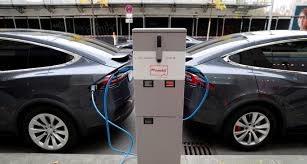 The August 5th announcement by the three major U.S. vehicle manufacturers that they would convert to 40 percent electric models by 2030 has resulted in anxiety and concern in the biofuels industry. The announcement by the vehicle manufacturers coincided with Presidential Executive Order requiring half of new vehicles sold in 2030 to be classified as ‘zero emissions’. The Infrastructure Bill makes provision for electric vehicle recharging stations to facilitate conversion from carbon-based fuels.
The August 5th announcement by the three major U.S. vehicle manufacturers that they would convert to 40 percent electric models by 2030 has resulted in anxiety and concern in the biofuels industry. The announcement by the vehicle manufacturers coincided with Presidential Executive Order requiring half of new vehicles sold in 2030 to be classified as ‘zero emissions’. The Infrastructure Bill makes provision for electric vehicle recharging stations to facilitate conversion from carbon-based fuels.
 It is evident that demand for ethanol to be added to gasoline will wane with conversion from internal combustion to electric power. The anticipation of the agricultural sector is that heavy vehicles, aircraft and ocean-going vessels will still require a carbon-based fuel with biodiesel the most likely possibility. A number of municipalities and large fleet operators are converting to biodiesel but this does not require \extensive capital investment in new technology or installations.
It is evident that demand for ethanol to be added to gasoline will wane with conversion from internal combustion to electric power. The anticipation of the agricultural sector is that heavy vehicles, aircraft and ocean-going vessels will still require a carbon-based fuel with biodiesel the most likely possibility. A number of municipalities and large fleet operators are converting to biodiesel but this does not require \extensive capital investment in new technology or installations.
The move to electric vehicles can only benefit the environment if electricity is generated from either renewable, hydroelectric or nuclear energy. Burning coal to power electric vehicles will do little for the environment. At the very least, natural gas if extracted with a minimal release of methane will obviously be preferable to coal.